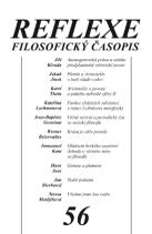Kant's Critique of Pure Reason
What kind of philosophical procedure is Kant’s critique of pure reason, as presented in the book of the same title, and what is its aim? First, Kant characterizes the critique as transcendental knowledge, and as such it deals with the ways of knowing objects of possible experience. Such knowledge can be used negatively, in order to specify how traditional metaphysics, as well as the sceptical attack against it, transgress proper limits of the competent use of reason. Along these lines, one can define the very aim of the Kantian critique within the framework of the history of reason. And one can attach here a claim concerning the actual procedure of the critique: for Kant, it comes to its own in a form of genuine interdependence between the historical approach toward the form of reason on the one side and the „logical self-consciousness“ that functions as a subjective mediator of the form of reason and constitutes one of the centers of the critique, on the other.
Backlinks: Reflexe 26
